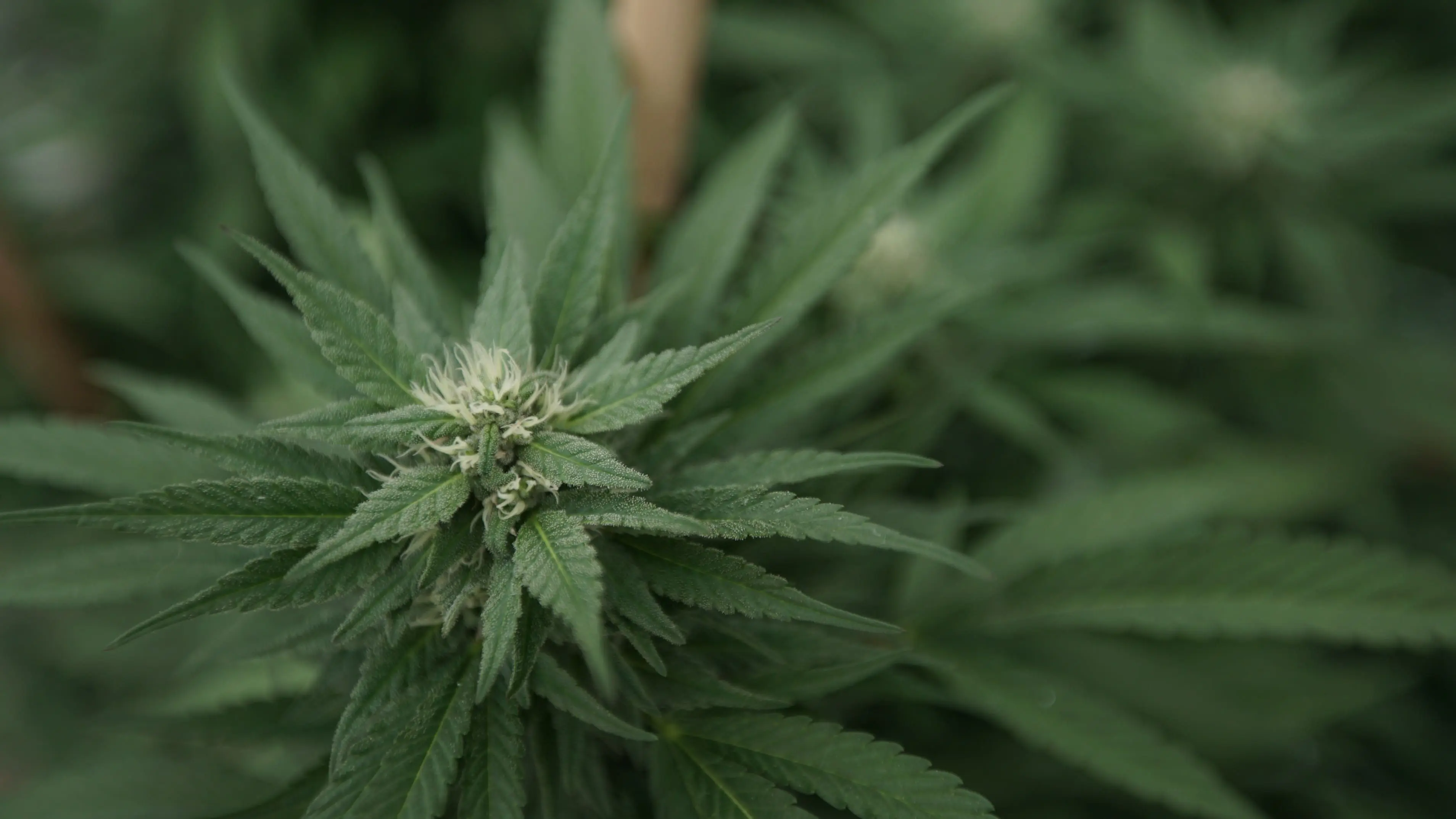Politics
Ahead Of New Jersey Governor Election, GOP Candidate’s Comments On Marijuana As A ‘Gateway Drug’ Resurface

As Election Day approaches, New Jersey voters are deciding between two major party candidates for governor with diverging views about marijuana—including the Republican gubernatorial hopeful who’s called cannabis a “gateway drug” and voted against a bill to add post-traumatic stress disorder (PTSD) as a qualifying condition for medical marijuana.
Former state Assemblyman Jack Ciattarelli (R) is facing off against U.S. Rep. Mikie Sherrill (D-NJ), a former federal prosecutor who has supported cannabis reform legislation in Congress.
Where Ciattarelli stands on marijuana policy
While Ciattarelli has expressed support for allowing home cultivation for medical cannabis patients, newly resurfaced comments from the Republican contender reveal that he’s historically been hostile to reform, characterizing marijuana as a “gateway drug” during a 2021 town hall event when he previously ran for governor, as MeidasTouch reported.
He also said at the time that, if New Jersey’s voter-approved recreational legalization law proved to be a “disaster,” he would look into reversing the policy, possibly by putting a measure on the ballot to roll back the law.
The gubernatorial hopeful also previously said that the state could have “addressed social injustice with the decriminalization of marijuana, not the approval of recreational marijuana,” reiterating his opposition to the broader policy.
In 2016, Ciattarelli voted against legislation to add PTSD to the state’s list of qualifying conditions for medical marijuana. That bill ultimately passed the Assembly in a 56-13 vote and was signed into law by then-Gov. Chris Christie (R).
On the hot topic of home cultivation rights in New Jersey, the GOP candidate said earlier this year that he does feel medical marijuana patients should be allowed to grow their own plants. But echoing points from other skeptics—as well as incumbent Gov. Phil Murphy (D), who is term limited and cannot run again—he told the New Jersey Monitor that he worries about the potential economic impact of such a policy change for the marijuana industry.
“One thing we want to be careful about is not taking the carpet out from beneath the feet of people who’ve invested a whole lot of money because the Murphy administration failed to consider this particular dynamic,” Ciattarelli said.
NORML gave Ciattarelli a “D” grade in its voter guide.
Where Sherrill stands on marijuana policy
During her time in Congress, Sherrill in 2019 and 2021 voted in favor of Democratic-led bills to federally legalize marijuana and promote social equity. That legislation—the Marijuana Opportunity, Reinvestment and Expungement (MORE) Act—cleared the House both times, but didn’t advance in the Senate.
Before being elected to Congress in 2018, Sherrill endorsed federal rescheduling of marijuana.
“As someone running for federal office who also worked as a U.S. attorney, I would like to see [marijuana] taken off the Schedule 1 controlled substances list,” she said. “Because quite frankly, that means there’s no known medical use and it can’t be studied. And we all know that that’s simply not the case. So that’s the first thing that I would like to see happen.”
Additionally, she’s consistently supported the Secure and Fair Enforcement (SAFE) Banking Act to prevent federal regulators from penalizing financial institutions simply for working with state-licensed cannabis businesses.
She said this year that she backs “common-sense regulations, safeguards and limits” for adult-use legalization in New Jersey, pledging to work with stakeholders to create a regulatory model that’s implemented in a “thoughtful and safe way.”
In 2023, the congresswoman sponsored an amendment to defense legislation to expedite the waiver process for military recruits and applicants who admit to prior cannabis use by allowing the lowest-level defense employees to issue such waivers.
The prior year, Sherrill proposed an amendment to the National Defense Authorization Act (NDAA) to eliminate the federal sentencing disparity between crack and powder cocaine.
Another amendment she filed for the 2025 NDAA, which was blocked from floor consideration, would have expanded eligibility for expungements of non-violent drug convictions by removing an age restriction limiting relief to those who were under 21 at the time of the offense.
In House floor voters, the congresswoman in 2019 and 2020 backed amendments to protect all state marijuana programs from federal intervention. In 2022, she voted in favor of legislation to expand medical cannabis research that was ultimately signed into law by then-President Joe Biden.
This session, meanwhile, the congresswoman filed a bill that would require Elon Musk and other workers at the Department of Government Efficiency (DOGE), which Musk has since left, to submit to drug testing to maintain their “special government employee” status.
Outside of marijuana, Sherrill joined other bipartisan congressional lawmakers in 2023 in asking leadership to instruct federal health agencies to include active duty military service members in psychedelic studies.
Curiously, however, she twice voted against amendments from Rep. Alexandria Ocasio-Cortez (D-NY) that were aimed at removing certain research restrictions for Schedule I drugs, including cannabis and psychedelics.
NORML has given Sherrill an “A” grade in its voter guide.
Photo courtesy of Chris Wallis // Side Pocket Images.



